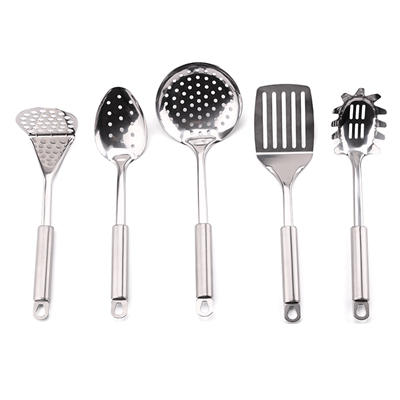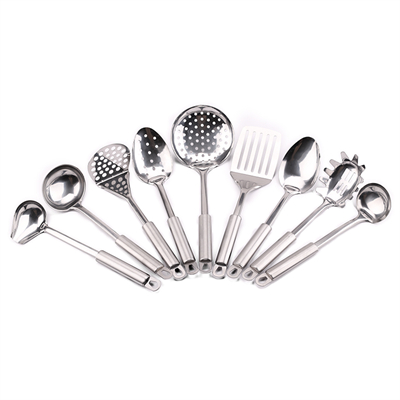How to clean and maintain stainless steel utensils?
Before use, utensils can be coated with a thin layer of vegetable oil and dried on fire. This is equivalent to putting on a layer of yellowish oil film “clothing” on the surface of the vessel. This makes it easy to clean and prolongs its service life.
Do not wash with strong alkaline or strong oxidizing chemicals such as baking soda, bleaching powder, sodium hypochlorite, etc. Because these substances are strong electrolytes, they will react electrochemically with stainless steel. thereby rusting the utensils.
Stainless steel utensils have lower thermal conductivity and slower heat transfer time than iron and aluminum products. Empty burning will cause the aging and peeling of the chrome layer on the surface of the cookware. Therefore, do not burn in empty.
Do not store salt, soy sauce, vinegar, vegetable soup, etc. for a long time. Because these foods contain a lot of electrolytes. Stainless steel also behaves like any other metal if kept for a long time. It reacts electrochemically with these electrolytes, so that harmful metal elements are dissolved out. Not only is it harmful to utensils itself, but it also damages the health of the human body.
Wash stainless steel utensils with lukewarm water immediately after using them. In order to avoid oil stains, soy sauce, vinegar, tomato juice and other substances and the surface of utensils. Causes the stainless steel surface to become dull and even dented.
In case of limescale composed of hard water. Use vinegar to wipe clean or a paste of water ash and water to wipe stains on stainless steel utensils. Then wash with hot soapy water.
















